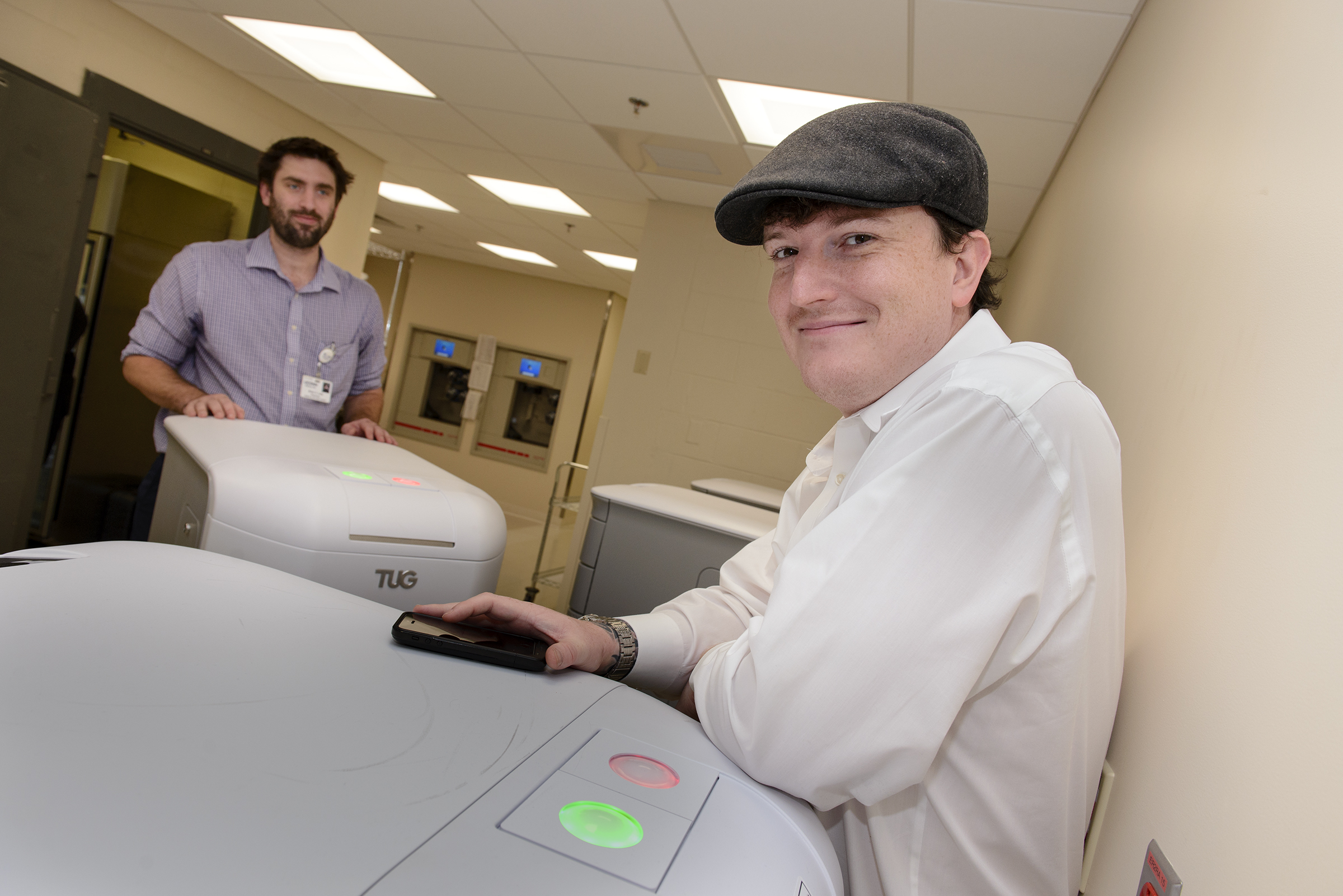Peter Frost works as an administrator and clinical systems coordinator in the Department of Pharmacy at UConn Health. But not many of his fellow employees may know that he also lives with a neurological disease known as Juvenile Myoclonic Epilepsy, the most common of the generalized epilepsy syndromes to emerge in mid-to-late childhood.
Frost sat down for a Q & A to help shed light on what it’s like living and working with a neurological condition like his, which can often at times be invisible to the outside world.
When did you join UConn Health?
My first day at UConn Health was just a little over 9 years ago on October 12, 2007.
When did you first develop symptoms of Juvenile Myoclonic Epilepsy?
I was first diagnosed with Juvenile Myoclonic Epilepsy (JME) when I had my first grand mal seizure at the age of 13. Though my symptoms of the neurological condition developed much earlier such as eye rolls, eye fluttering and my dropping of objects.

What daily challenges do you experience personally and at work?
Upon waking, I can experience episodic events such as poor equilibrium — bumping into things/walls, staring spells –pausing wherever I am and becoming unresponsive, along with eye rolls, flutters, and muscle jerk spasms. Some of these symptoms have manifested at work. In addition, after experiencing such events, lights can become incredibly bright leading me to experience physical pain. Also, poor sleep patterns and stress can exacerbate these issues.
What are some of the misconceptions others can have about you as a person living and working with neurological disease?
As some of my symptoms manifest in the real world – staring spells, eye rolls, fluttering, and jerks of a muscle – it has previously led to people thinking that I may not be paying attention, dismissive of what they are saying, or even confusion about why I do things a certain way.
What is important for others, especially your co-workers to know about you and others with neurological diseases?
Informing leads to greater awareness. With greater awareness, should a neurological event occur, your colleagues can be your first defense to protect you from further harm. They can also speak for you should you be unable to. This is also critical should you need to be seen by emergency responders.
What has been your greatest triumph over your disease so far?
My greatest triumph would be stepping out of the shadows and owning my epilepsy. It’s who I am. We all have issues that are invisible to others. I hope my sharing can serve as a catalyst for conversations amongst UConn Health and the surrounding community.
Why is it so important for those living with neurological conditions to come out of the shadows to raise awareness among their co-workers?
Increasing knowledge and awareness is important to remove societal stigmas. Also, with increased dialogue and understanding we may be able to discover more treatment methods and how neurological conditions impact us. At the very least, it can increase bonds between colleagues and peers.
Any important first-aid or safety awareness needs to share with the UConn Health community and beyond when it comes to neurological disease?
Each neurological disease presents different important first-aid or safety awareness. For epilepsy, I highly recommend the following resources from www.epilepsy.com about epilepsy basics, staying safe and seizure first-aid.



